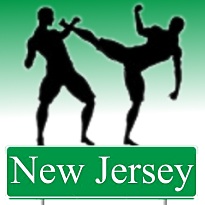 We’ll have to wait until Friday to learn whether the professional and college sports leagues suing to block New Jersey’s sports betting plans have the necessary standing to continue their challenge. On Tuesday, Judge Michael Shipp heard oral arguments by legal representatives of the two warring factions, but ultimately concluded that the issue was sufficiently complex to warrant a written decision, which Shipp promised to deliver on the 21st.
We’ll have to wait until Friday to learn whether the professional and college sports leagues suing to block New Jersey’s sports betting plans have the necessary standing to continue their challenge. On Tuesday, Judge Michael Shipp heard oral arguments by legal representatives of the two warring factions, but ultimately concluded that the issue was sufficiently complex to warrant a written decision, which Shipp promised to deliver on the 21st.
The leagues were represented by Jeffrey Mishkin, while the state’s legal champion was former US Solicitor General Theodore Olson. Thanks to timely tweets by those in attendance, including iMEGA’s Joe Brennan Jr. (@joebrennanjr), NorthJersey.com’s John Brennan (@BergenBrennan) and Griffin Finan (@G_Finan), we have a pretty good picture of the verbal blow-by-blow. Brennan also noted that reps from UK (and Nevada) bookies William Hill were among the (pardon the pun) standing-room-only crowd attending the hearing, adding weight to rumors they would open a betting window at the state’s Monmouth Park racetrack should the state’s side prevail.
OH, YES IT IS
The leagues were up first, arguing that the issue of standing was a no-brainer, given the games generate money for the leagues and New Jersey was seeking to illegally profit off the leagues’ product. Mishkin claimed all the leagues were required to do to justify standing was demonstrate a “sufficient identifiable trifle” of a stake in the outcome of New Jersey’s plans. Mishkin repeated the leagues’ tedious ‘integrity’ arguments but added the (unsupported?) claim that studies had shown the majority of sports fans opposed betting on the outcome of games.
Challenged by Shipp as to why the leagues both permitted and promoted fantasy sports, Mishkin claimed that fantasy sports pimped the leagues’ product without posing the (alleged) threat to the aforementioned integrity. Mishkin then offered the analogy that the difference between fantasy sports and sports betting was akin to the line separating “playing Monopoly and being in the real estate market.” Mishkin also made the somewhat bizarre assertion that Nevada’s relative geographic isolation posed less of an integrity threat than New Jersey, which is situated in the more densely populous eastern seaboard.
OH, NO IT ISN’T
When Olson came up to bat, he insisted that in order for the leagues to claim standing, they needed to demonstrate actual particularized concrete injury, which Olson said they’d so far failed to do. Olson argued that if ‘perception’ were all that was required to demonstrate injury, the Sierra Club environmental group would never lose a case. Olson also argued that since the suit involved the question of the constitutionality of the federal PASPA sports betting prohibition, the standard for granting standing needed to be much more stringent.
Olson rejected the leagues’ claims that New Jersey’s law would create more sports bettors and repeated the state’s longstanding position that it was merely attempting to grant a legal stamp of approval to an activity that was already happening, with or without New Jersey’s participation or the leagues’ consent. Olson also rubbished the leagues’ claims that gambling has been a monkey on their backs, noting that the leagues’ popularity has risen in tandem with the growth of sports betting. Olson also mocked the leagues’ use of a study that showed 17% of respondents believed gambling affected the outcome of games, noting the same study showed 40% of respondents believed league bosses had a direct hand in game outcomes. (Or entire seasons, if you’re a current NHL fan, but we digress…)
SUPPLEMENTAL READING
Looming large throughout the hour-long hearing was the 2009 ‘Markell’ decision (named for Delaware Gov. Jack Markell) in which the leagues beat back Delaware’s PASPA challenge. The issue of the leagues’ standing was not addressed in that suit, which the leagues believe demonstrated that standing was assumed, while Olson argued that the Supreme Court doesn’t assume standing is automatically conferred if the issue is never raised.